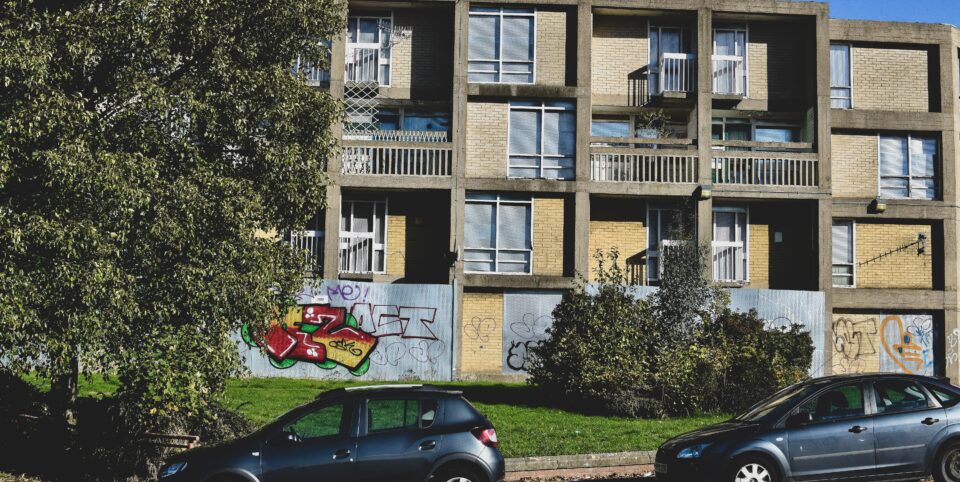Contact
020 7953 7040
info@ccameron.co.uk
Charles Cameron & Associates
Blackfriars Foundry
154-156 Blackfriars Road
London SE1 8EN
Mortgage types explained
May 15, 2023
Information published was correct at the time of writing
How will fluctuations in interest rates impact on my mortgage?...

The Bank of England sets the base rate for interest rates in the UK, which is a benchmark for other lenders who use this as a guideline to set their own credit and mortgage rates. Consequently, changes in the base rate can have an impact on how much you pay each month on your mortgage. Mortgage payments tend to be affected more by small fluctuations, rather than large ones; however, if there is a significant change that has a prolonged effect then it could result in substantial savings or costs over time.
When interest rates rise, borrowers will find themselves paying more; conversely, when they are reduced, the amount needed to cover the repayment will be lessened. It is important to remember that while many people are aware of the base rate, lenders may not necessarily pass on any changes immediately. Therefore it is important to be mindful of what your lender has done with their own interest rates and how this could potentially affect your household budget.
With the recent rise in interest rates, many people with a mortgage are likely to have been affected in some way, unless they are still on a discounted or fixed rate deal. The magnitude of the impact on your finances will depend on various factors, including the type of mortgage you have.
STANDARD VARIABLE RATE (SVR) MORTGAGES
If you have an SVR mortgage, your lender sets the interest rate, which usually follows the Bank of England’s base rate movements. While rates may not rise as much as tracker rate mortgages, lenders will likely pass on the interest rate increase on to their customers. When your initial mortgage deal comes to an end, your lender may automatically transfer your mortgage to their SVR. This means that your payments could increase as soon as your next payment.
Your lender should send you a letter explaining the new rate and what you can expect to pay. If you haven’t received any communication from them, it is advisable to contact them immediately.
FIXED RATE MORTGAGES
With this type of mortgage loan, the borrower pays a set amount each month for an agreed period of time. The interest rate remains fixed throughout the fixedterm duration of the loan and so there is no fluctuation in monthly payments or risk that you will have to pay more if interest rates rise. This makes it easier to budget and can make your mortgage payments more manageable over a longer period of time. Fixed rate mortgages have become increasingly popular as borrowers seek to protect themselves from rising interest rates and volatile markets.
They provide a comfortable level of security, knowing that payments remain consistent by usually fixing the rate on your mortgage for between two and five years at a time. Although you may be able to get a fixed rate mortgage for between seven and ten years, too. If you need to switch lenders or refinance your loan during this period, however, then there may be additional fees involved.
DISCOUNTED RATE MORTGAGES
Discounted rate mortgages usually come with an initial period when the interest rate is discounted from the SVR. This initial period may last for one, two or three years or even longer, depending on the lender’s terms and conditions. After this period ends, the interest rate will revert back to the SVR unless you have taken out an extended fixed rate deal.
During this initial period, borrowers can also benefit from any changes to either the Bank of England Base Rate or SVR, whichever is lower at any given time during your mortgage term. It is important to note that although discounted rates can help you save money over the course of your loan in some cases, they may not always be more cost-effective than other types of mortgages such as fixed-rate deals. Overall, discounted rate mortgages can be a useful option for borrowers looking to save money on their monthly mortgage payments.
However, it is important to research all the available options before committing to any deal and ensure you are getting the best deal for your particular circumstances.
TRACKER RATE MORTGAGES
Tracker rate mortgages change in line with the Bank of England’s base rate plus a few percent. Tracker rates usually last for one to five years before reverting to a SVR. This means that if the Bank of England increases its base rate, then your interest payments will also increase, so you would be paying more for your mortgage each month. But if there is a reduction in the base interest rate, then you would pay less for your mortgage each month.
However, you do not have the security of a fixed rate mortgage and should interest rates increase significantly during your loan period then this could be costly for borrowers. It is important to consider all aspects when choosing a tracker rate mortgage. Talk to a professional mortgage adviser before committing to one so they can discuss all the options available and help you find the right solution for your needs.
Don’t forget, our professional friendly advisers are on hand to support you and can help you explore all of your options.



